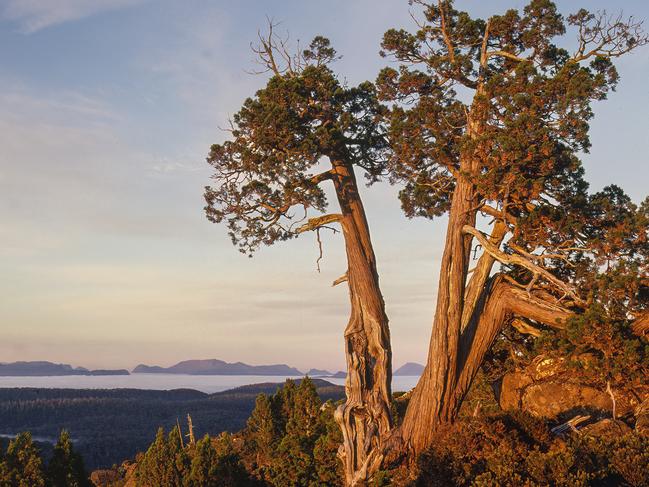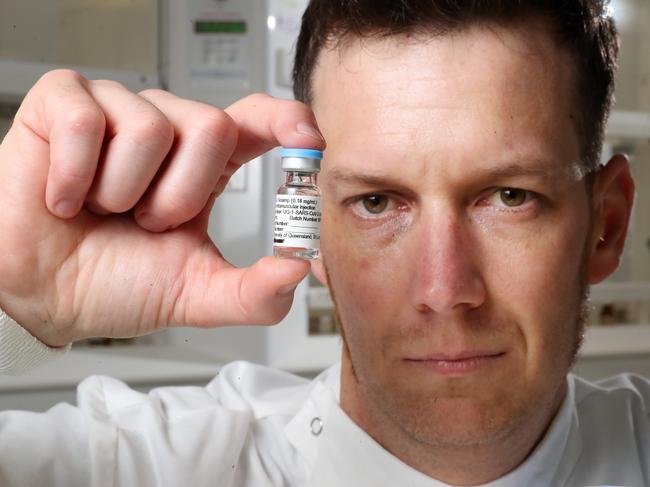
Air of hope in galactic quest for life support
Researchers have proposed the easiest way to spot other habitable planets may be to measure what they lack, rather than what they have: specifically, carbon dioxide.

Researchers have proposed the easiest way to spot other habitable planets may be to measure what they lack, rather than what they have: specifically, carbon dioxide.

A new research shows that smart devices like Amazon’s Alexa, Apple’s Siri and Google Home could be used to combat domestic violence.

The Smart Lander for Investigating Moon (SLIM) is designed to land within 100m of a specific target on the lunar surface.

World-first research has for the first time shown athletes may have a genetic predisposition that can lead to reduced heart function.

When Kelsey Hatcher went to her routine ultrasound appointment, eight weeks into her pregnancy in May, she was in for a surprise.

Bob Brown has turned on sections of the wind industry, accusing some developers of ‘profiteering’ from climate change, while warning the wind rush risks accelerating extinctions.

A volcano erupting close to an Iceland power plant shot geysers of molten lava into the dark winter sky on Tuesday after weeks of intense seismic activity.

The medical device industry has been accused of employing similar tactics to the tobacco lobby amid controversy over dubious spinal cord stimulation surgeries.

Researchers have found that chimpanzees can recognise friends and relatives they have not seen for more than 20 years.

NASA has announced it had used a laser system on a spaceship 31 million kilometres from Earth – to send a cat video.

The world’s first cancer vaccine prevents cancer returning in melanoma patients for as long as three years, new results from a major clinical trial shows.

Broccoli could explain why some people remain relatively healthy with fatty liver disease and why some develop cirrhosis or cancer, new research reveals.

A cure for morning sickness that plagues most pregnant women may be on the horizon after scientists identified what appears to be its main cause.

A British group has become the first in the world to test a male contraceptive pill.

The peak psychiatry college has become the first medical body in the country to acknowledge shifting evidence on transgender healthcare and puberty blockers.

Australian start-up Nomad Atomics is poised to revolutionise minerals exploration and possibly the world’s militaries with a very precise instrument for measuring gravity.

A tribunal has overturned a requirement for a proposed wind farm to shut down for five months each year to protect migrating orange bellied parrots, in a major victory for industry.

Australia’s leading genomics experts will look at localising a UK blueprint for genetic testing to improve the country’s dire access issues which have resulted from a “piecemeal” funding system, long wait lists and a limited workforce.

As intense bushfires burn plants that usually escape fire, should Australians accept their permanent loss – or can we intervene? An experiment in Tasmania’s high country is seeking answers.

Studies from the University of Sydney shine a new hope on combating premature infant mortality rate.

One of Australia’s biggest prescribers of weight-loss drugs is trying to stop patients becoming ‘skinny-fat’ amid concerns users risk becoming ‘lean but malnourished’.

Australian scientists have had their faith in troubled molecular clamp vaccine technology vindicated.

Quantum technology is not just about physics. A team at Sydney University is using quantum computing to improve health.

The battle over gender affirmative medicine in Australia has intensified with a call to arms by two experienced psychiatrists for their fellow doctors to resist the pressure of activism driving treatment.

Australian researchers want the blood test to ‘triple survival rates’ for the disease by 2030.

Top scientist warns that tough AUKUS security restrictions on sensitive technology will impact Australia’s broader scientific effort.

Lockdowns, social distancing and compulsory mask wearing may be a thing of the past, but the COVID-19 virus is still very much here in Australia.

A world-first fire-retardant paint developed by Australian scientists may hold the key to safer homes and cheaper insurance premiums as another deadly bushfire season approaches.

AI can spot early heart problems that are missed on CT scans reviewed by the human eye, saving thousands of lives every year, a study suggests.

No-nonsense commander of Apollo 8, the first to orbit the moon, saw it as part of the technological arms race to beat the Soviets.
Original URL: https://www.theaustralian.com.au/science/page/10